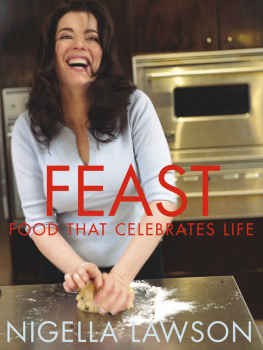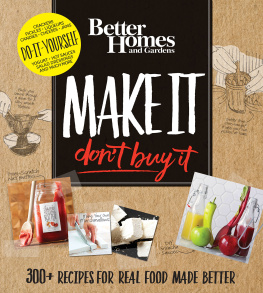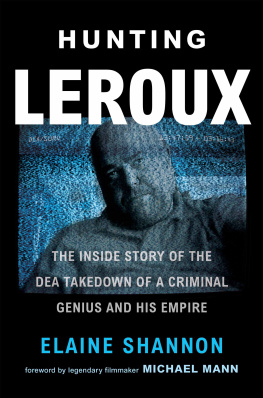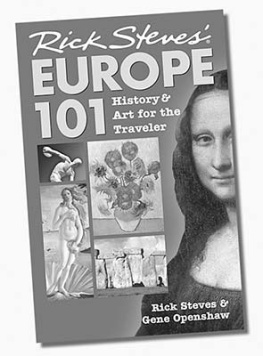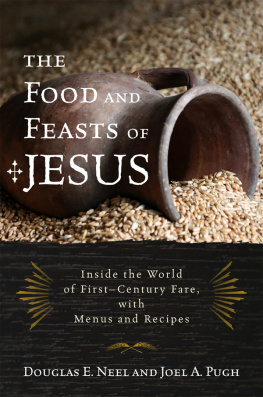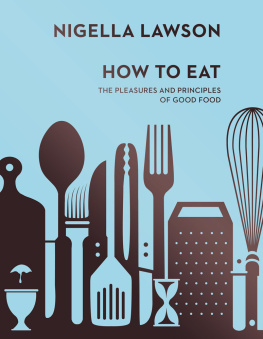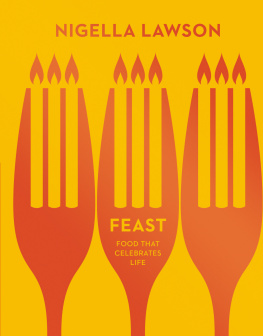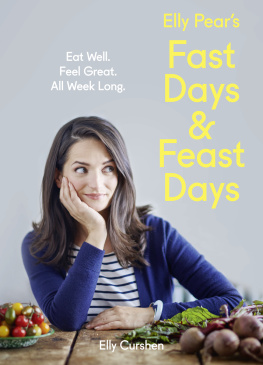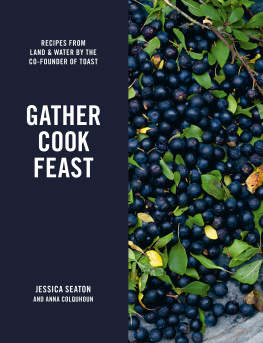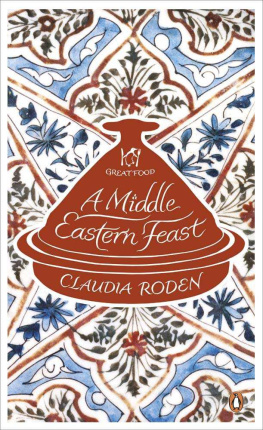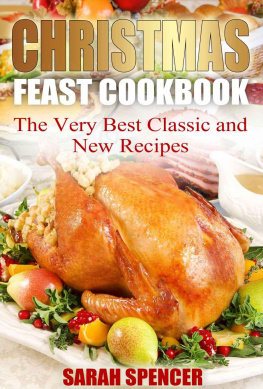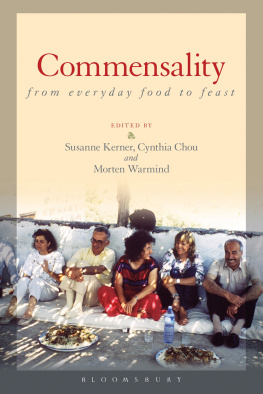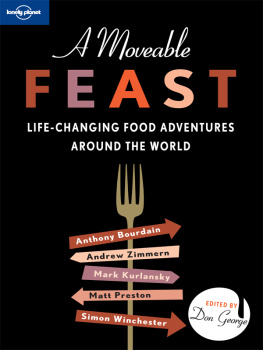PUBLISHED BY ALFRED A. KNOPF CANADA
Copyright 2004 Nigella Lawson
Photographs copyright James Merrell 2004
All rights reserved under International and Pan-American Copyright Conventions. Published in paperback in 2006 by Alfred A. Knopf Canada, a division of Random House of Canada Limited, Toronto, and simultaneously in Great Britain by Chatto & Windus. Originally published in hardcover in Great Britain and simultaneously in Canada in 2004. Distributed by Random House of Canada Limited, Toronto.
Knopf Canada and colophon are trademarks.
FOOD NETWORK is a trademark of Television Food Network G.P.: used with permission.
Library and Archives Canada Cataloguing in Publication
Lawson, Nigella.
Feast: food that celebrates life / Nigella Lawson.
eISBN: 978-0-307-36397-8
1. Cookery. 2. Food. I. Title.
TX714.L392 2004 641.5 C2004-901907-4
www.randomhouse.ca
v.3.1
Also by Nigella Lawson
HOW TO EAT
THE PLEASURES AND PRINCIPLES OF GOOD FOOD
HOW TO BE A DOMESTIC GODDESS
BAKING AND THE ART OF COMFORT COOKING
NIGELLA BITES
FOREVER SUMMER
FOOD THAT CELEBRATES LIFE
NIGELLA EXPRESS
GOOD FOOD FAST
NIGELLA CHRISTMAS
FOOD, FAMILY, FRIENDS, FESTIVITIES
KITCHEN
RECIPES FROM THE HEART OF THE HOME
ABOUT THE BOOK
Feast is a must for every kitchen. In the style and tradition of Nigellas classic How to Eat, it applies those same pleasures and principles of Good Food to celebrations from feast days to everyday happiness.
Essentially about families and food, about public holidays and private passions, about how to celebrate the small pleasures as well as the big occasions, it includes everything from Christmas, Thanksgiving, Hanukkah and Eid, to passover and Easter; from Meatless Feasts to Midnight Feasts, from weddings to funerals, from kitchen feasts to kids favourites, from partytime to the ultimate Chocolate Cake Hall of Fame.
Heartwarming, passionate, informed, refreshingly uncomplicated and full of ideas, Feast is destined to become a classic like How to Eat. Written with the same enjoyment, sensuality and practical awareness, and packed with over 300 recipes and more than 200 photos, Feast proclaims Nigellas love of life and great food to celebrate it with.
ABOUT THE AUTHOR
Nigella Lawson is the author of bestselling books How to Eat (may just be the best cookery book ever Daily Telegraph), How to be a Domestic Goddess (British Book Awards 2001), Nigella Bites (WHSmith Award 2002), Forever Summer (images of warmth and Mediterranean climes Time Out), Nigella Express (no. 1 bestseller with over 1 million sales), Nigella Christmas (everything to make your Christmas sparkle Independent) and most recently Kitchen (another blockbuster hearty and wholesome Daily Express) which, together with her successful TV series and the Nigella Quick Collection app, have made her a household name around the world. She lives in London with her family.
CONTENTS
FOR MIMI, PHOEBE AND BRUNO
INTRODUCTION
C OOKING HAS many functions, and only one of them is about feeding people. When we go into a kitchen, indeed when we even just think about going into a kitchen, we are both creating and responding to an idea we hold about ourselves, about what kind of person we are or wish to be. How we eat and what we eat lies at the heart of who we are as individuals, families, communities.
Not that feeding people or, indeed, ourselves is a minor part of the exercise. The thing about cooking is that although it can occupy the realm of metaphor, and is rich in meanings that have nothing to do with the culinary world, it is always a practical venture, and central to that is our basic need for sustenance to keep us alive. Anyone who has ever seen a newborn baby knows that the primal instinct is to feed, and that stays with us. For a baby, food and intimacy are inextricably linked and although this is demonstrated less baldly as we get older, that connection never goes away.
As cooking becomes less and less an everyday activity, there are those tend to idealize it, and the cook is vaunted as the nurturer, the provider of good things and the person who gives an essential embrace. All thats true, but the shortcomings of the food-as-love brigade are not that too much emphasis is put on food, but not enough. Food isnt just love, food encompasses everything: it may be only a part of life but in an important way it underpins the whole of it. Basic to the whole thing of being human is that we use food to mark occasions that are important to us in life. Feast is not just about the way we cook and eat at the great religious festivals or big-deal special occasions, but about how food is the vital way we celebrate anything that matters a birthday, a new job, an anniversary; its how we mark the connections between us, how we celebrate life.
Different peoples eat different foods, and yet it is the desire to sit down at a table and eat with others be they family or friends that we share. And although food is nothing except fuel without the context in which it is eaten, you do not have to share the context to eat the food or to understand its meaning. You can borrow honestly. The rich curry banquet of Eid or the soothing but sprightly balm of the chicken soup for Seder translate easily to those who celebrate neither. Im not interested in theme-park cookery: theres no need to pretend to be a Venetian to cook recipes from the Venetian Feast; and though it can be absorbing and rewarding to wallow in the welcoming abundance of a full-on feast, part of cooking is about choosing what you want to eat, and piecing together recipes to make your own feasts. Ive never seen my role as that of a kitchen dictator. Im interested in the story of food; I leave the plot to you. Its your life, after all.
When I started writing about food, I stated that if the point of cooking was the end product, its meaning lay in the process. I think that still, perhaps even more forcefully. It means something that when you want to gather your friends around you, it tends to be around a meal, and the recipes you choose to cook are secondary to that. To be sure the recipes matter, and those that follow are ones that matter most to me, but it is what the food says that really counts.
BEFORE YOU USE THIS BOOK
Bear in mind that a tablespoon is not what you might think of as a tablespoon, thats to say some capaciously bowled piece of cutlery for dishing out vegetables at the table, but a precise measurement: 15mls in volume or, if its easier, think of it as 3 teaspoonsful.
Roast meat is always better if you let it rest for a good, long time when it comes out of the oven.
Remember that ovens vary. The cooking times I give are the ones that work with my oven. You need to get to know yours.
Olive oil is not extra virgin unless specified.
Captions are given for pictures only when a photo is not immediately opposite a recipe or when it might be difficult to identify.
For stockists of specialist items, see my website www.nigella.com

